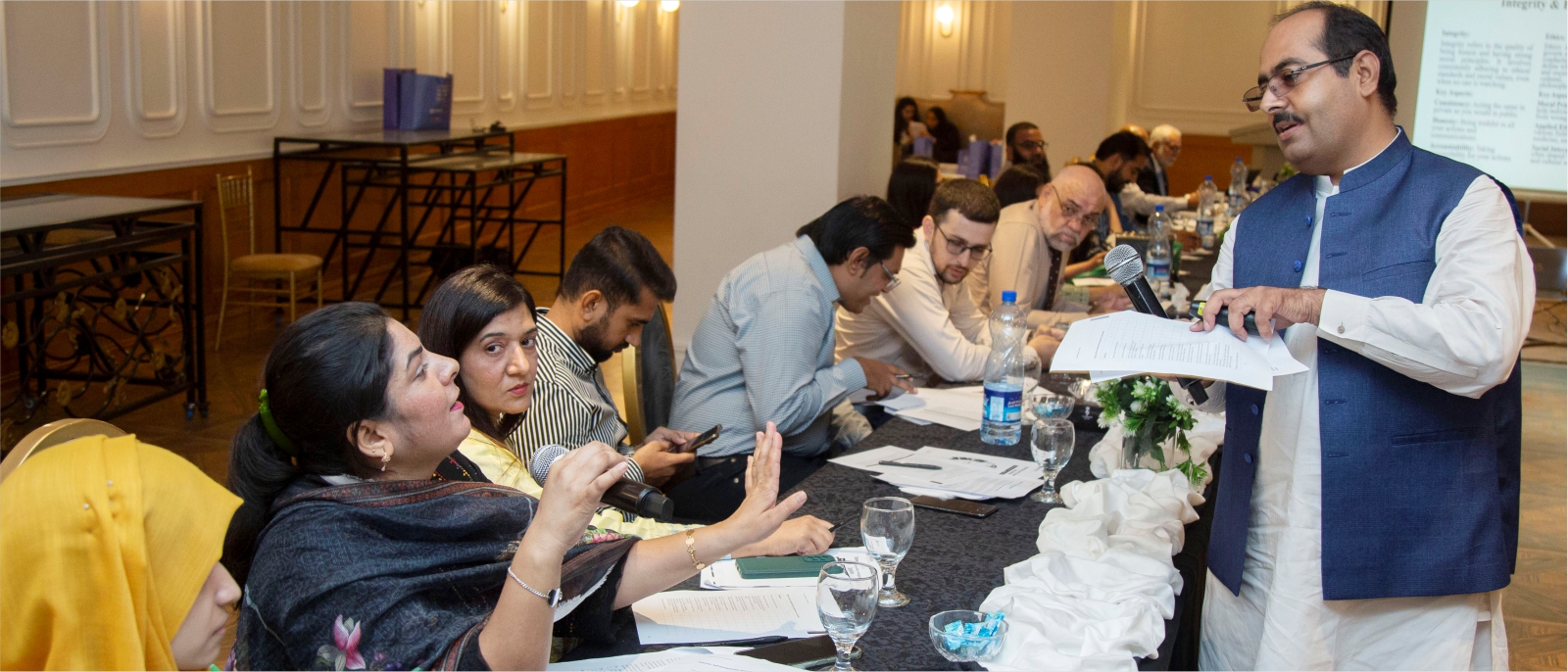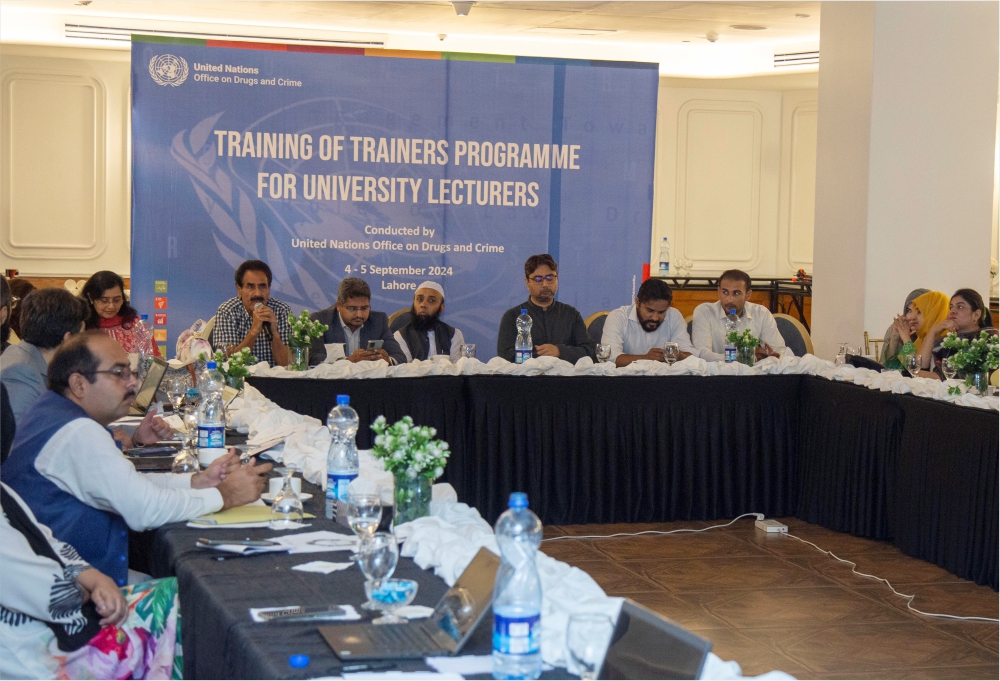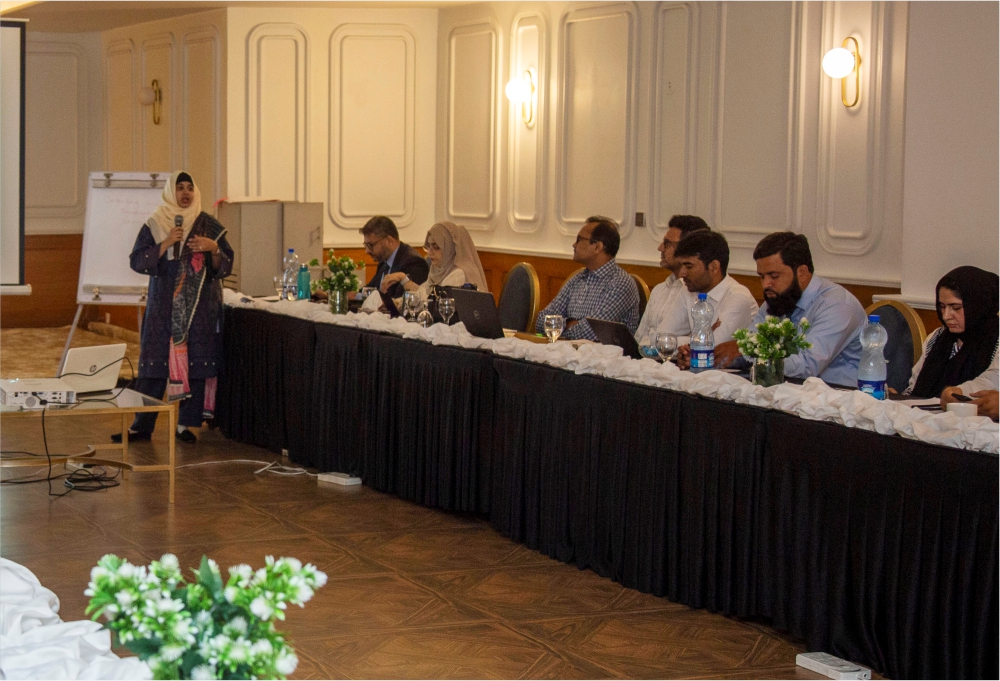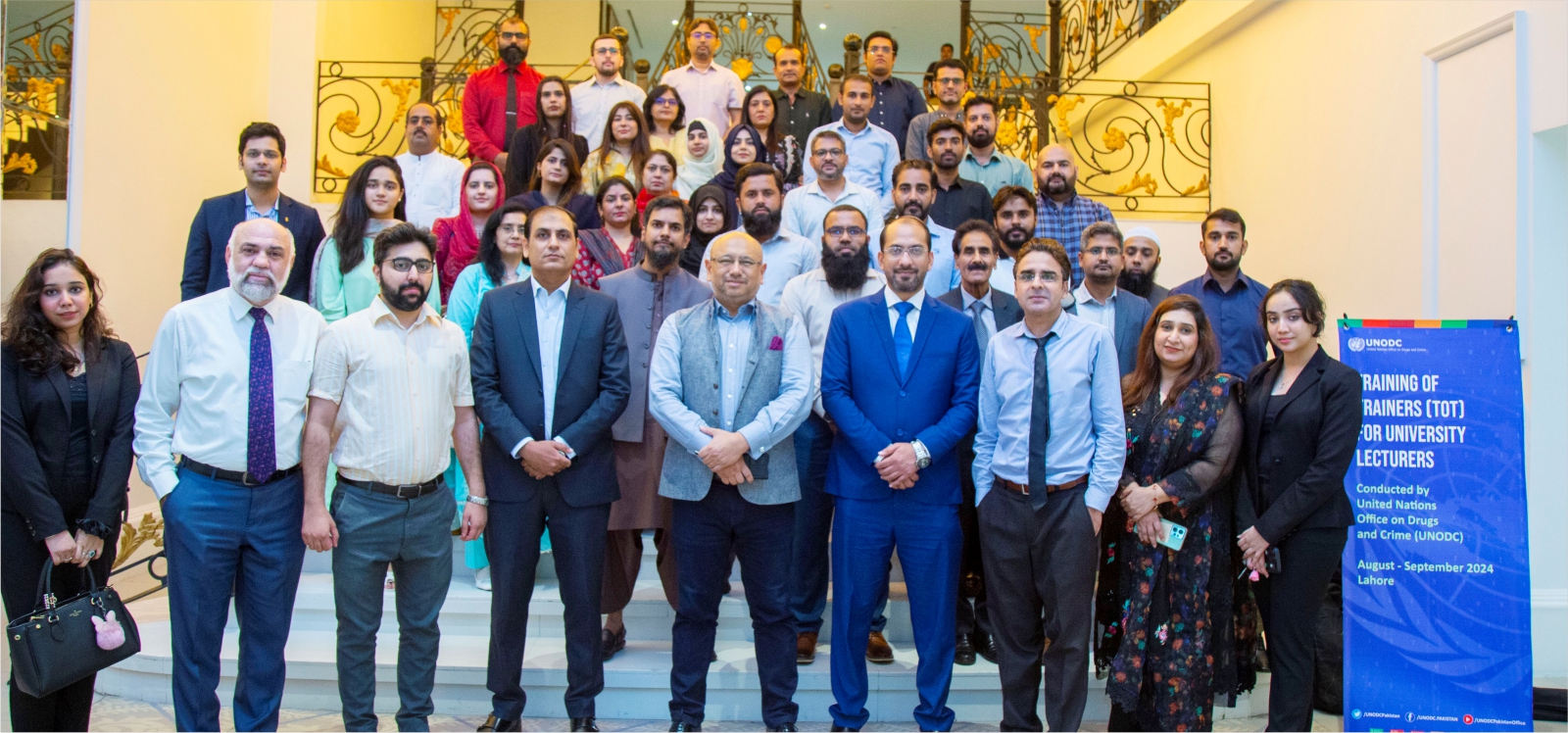
9 September 2024, Lahore - In a significant effort towards promoting ethical business practices in Pakistan, the United Nations Office on Drugs and Crime (UNODC) successfully concluded a transformative Training of Trainers (ToT) program on September 5, 2024, in Lahore. This initiative, part of UNODC's Global Action for Business Integrity Project, brought together 39 university lecturers, including 15 women lecturers, to empower them with the knowledge and skills needed to deliver graduate-level education in business integrity. The ToT was hosted by the University of Lahore, with participants from the University of Lahore, the University of Central Punjab, and Punjab University.
The TOT program spanned over a month, consisting of a series of in-depth training sessions. The training was designed to equip these lecturers with the knowledge and tools to effectively teach UNODC localized modules on ‘Ethical Leadership’, ‘Challenges of Ethical Living’, ‘Detecting and Investigating Corruption’ and ‘Behavioural Ethics’. The purpose of these modules is to develop a deeper understanding of business integrity, enabling lecturers to cascade learning to the graduate students so they can act with responsibility as future business leaders, upholding integrity in all facets of their professional conduct.
The training was a continuation of UNODC's efforts, building on a previous successful cohort of university lecturers who participated in a similar ToT. By expanding the pool of trained lecturers, UNODC is ensuring to reinforce and increase the capacity of universities to instil integrity and ethical practices in their business education programs.


One of the standout achievements of UNODC's work on business integrity has been its immediate impact on higher education in Pakistan. The University of Lahore has already incorporated the business integrity modules into its regular graduate curriculum as a stand-alone course. This incorporation not only signifies a significant advancement in ethical education but also establishes a sustainable model for other institutions, setting a precedent for long-term, systemic change in higher education across the country. The trained lecturers from the ToT can play a crucial role in delivering this course, sharing their newly acquired knowledge and expertise to upgrade the standard of business education.
The successful completion of this training marks an important stride in Pakistan’s journey towards promoting ethical business practices. By enhancing the educational foundation for future leaders, UNODC's Global Action for Business Integrity Project is contributing to enhance the private sector's role in responsible business practices. The project’s influence extends beyond the classroom, promoting a culture of integrity that is essential for sustainable economic growth. As expressed by one of the participants, “I must admit, before presenting my teaching demonstration, I felt like the weakest dot among such highly skilled, talented, and accomplished intellectuals. However, the encouragement and constructive feedback I received from the TOT after my demonstration was truly uplifting.”
This initiative underscores the critical role that education plays in the fight against corruption, and UNODC remains steadfast to supporting the integration of business integrity into higher education across Pakistan. UNODC’s role was strongly endorsed by the participants as one of the female participants enthusiastically expressed, “It was, indeed, an exclusive experience. Thank you so much UNODC for your efforts. Keep up the good work to promote ethics and ethical living for a better Pakistan!”
The participants of this training are now poised to inspire and lead the next generation of ethical business leaders, ensuring that the principles of integrity and responsibility become cornerstones of the business landscape in Pakistan.
